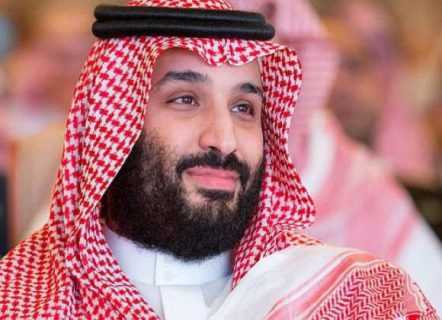Biden’s ‘tempting offer’

Saudi Arabia has no need of either the US or Israel
Since the beginning of this year, barely a month has gone by without a senior US official travelling to Saudi Arabia bearing a basketful of tempting offers in a desperate attempt to revive the special relationship between the two sides, offset Chinese and Russian influence, and promote Saudi-Israeli normalisation.
The latest high-level visitor was National Security Advisor Jake Sullivan, accompanied by Middle East envoy Brett McGurk, who held talks in Jeddah on Friday with Crown Prince Muhammad Bin-Salman. Nothing was released about the substance of their discussions, other than a bland statement saying they reviewed issues of common interest.
New York Times columnist Thomas Friedman. who is close to the Biden administration, wrote in his latest article that Biden is considering the possibility of a US-Saudi mutual security pact under which the US would commit to protecting the kingdom and selling it advanced weapons in exchange for it normalising relations with Israel. According to Friedman, who interviewed Biden last week, the Saudis want three things from the US: a security pact, a peaceful nuclear programme, and to buy sophisticated weapons including THAAD missiles and F-35 warplanes.
This all appears to reflect American wishful thinking. Biden is engaged in a belated attempt to shore up his country’s waning influence in the Middle East, and also to help Israel out of its internal crises by shifting the burden onto Saudi Arabia and other Arab states.
Sullivan has visited the kingdom at least twice before. According to an Arab diplomatic source close to Saudi Arabia, on the first occasion he was kept waiting for days to see Bin-Salman. When the crown prince condescended to meet him, he was unimpressed by his tempting offers, and gave short shrift to his demands that the kingdom disengage politically and economically with the Sino-Russian axis and freeze relations with Iran.
Saudi Arabia no longer needs the US with its declining influence, eroding global leadership, and record of multiple failures on the international stage — not least against Russia in Ukraine and China in East Asia and Africa. Its administration is so hapless it had to resort to the centenarian Henry Kissinger to patch things up with China, try to turn it against Russia, and explore prospects for mediation to end the Ukraine war.
Saudi Arabia does not need a mutual defence pact with the US. Certainly not after seeing how it entangled Ukraine in a war and then failed to send a single soldier to fight with it. When Saudi Arabia itself started experiencing blowback from the Yemen war, rather than rally to its side the US withdrew its Patriot missile systems from the country. And if it wants a peaceful nuclear programme or state-of-the -art warplanes and missiles, it can easily obtain them from China, Russia, or many other sources with no strings attached.
Saudi Arabia has strengthened its standing in the Arab and Islamic worlds. It achieved a breakthrough reconciliation deal with Iran, and rolled out the red carpet for the Chinese president in Riyadh. It does not need normalisation with an Israeli occupation state experiencing unprecedented internal implosion. It gained public support in the region for rejecting normalisation in the absence of an independent Palestinian state, and for riding the Trumpian storm of the Deal of the Century and Abraham Accords (until now, at least). It is not in its interest to squander that important gain.
Since it began turning its back on its disappointing US ally, Saudi Arabia has been doing extremely well. Its OPEC+ agreement with Russia turned its chronic budget deficit — which forced it to sell off shares in its crown jewel Aramco — into a $200 billion surplus. It is poised to join the BRICS grouping, with which it does $160 billion in annual trade, and has launched tourism and other projects to lessen its reliance on oil.
Whyever would it, messrs. Biden and Friedman, need either the US or Israel?
https://www.raialyoum.com/bidens-tempting-offer/
 TheAltWorld
TheAltWorld 
0 thoughts on “Biden’s ‘tempting offer’”